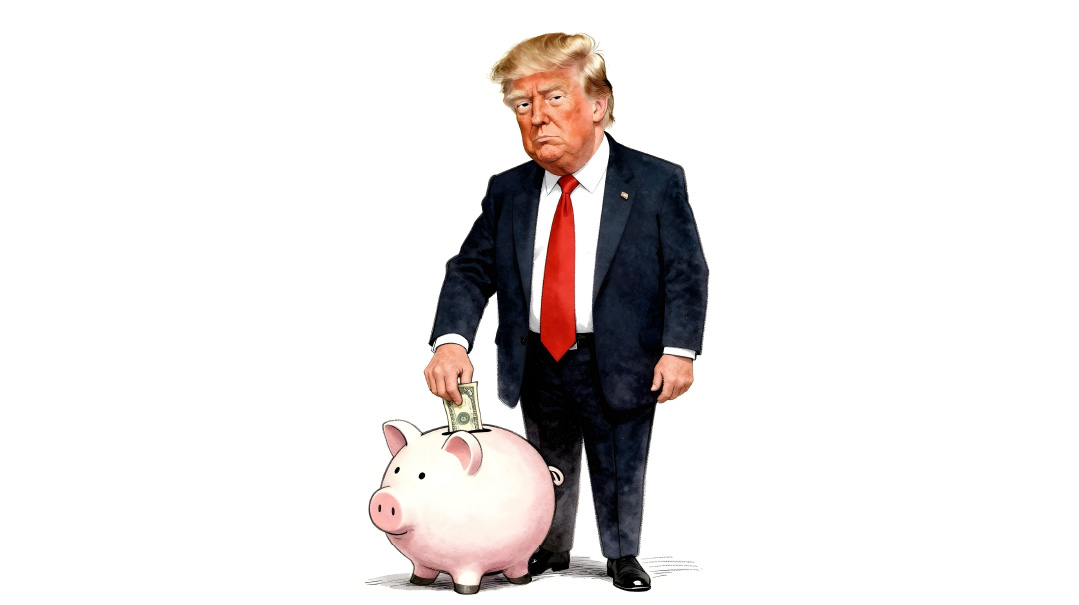Hypocrisy Alert
| September 3, 2024Starmer defended himself by blaming the Conservatives for “dragging the country down”

Hypocrisy Alert
Every time the late Conservative UK administration was engulfed in scandal (which was fairly often), Labour ministers toured the airwaves, deploring the corruption at the heart of government, and piously promising that they would restore ethics and integrity when they were elected.
But within weeks, new PM Keir Starmer has been accused of cronyism, appointing multiple political figures — including one who donated £20,000 to Chancellor Rachel Reeves — to key positions in the civil service, which is constitutionally required to be impartial and apolitical. Topping it all was the revelation that Starmer’s largest personal donor, TV tycoon Waheed Ali, had been given an all-areas access pass to 10 Downing Street, highly unusual for anyone outside government. Number 10 says the pass was only temporary, and Ali no longer holds it.
Speaking to reporters after a much-trailed speech about his commitment to service and renewal, among other platitudes, Starmer defended himself by blaming the Conservatives for “dragging the country down.” A rather novel defense for hypocrisy, wouldn’t you say?
Robots vs. Reporters
Google’s dominance threatens many industries. Particularly badly affected is local journalism, which has seen an evaporation of advertising revenue as users migrate online. Local newsrooms complain that Google posts their content for free, and then profits from the ad dollars generated by readers.
To try to counter this trend, the state of California has brokered a $250 million deal with Google, under which the search engine behemoth will funnel $110 million to support local newsrooms, and the state will pay $70 million. It’s similar to a law passed in Canada requiring sites like Google and Meta to pay local news sites for the right to public their content. But California made a deal with Google, not a law. It includes an additional $70 million earmarked for private investment into the development of artificial intelligence, which journalists fear will ultimately render their jobs obsolete.
State assemblywoman Buffy Wicks, the Democrat who led negotiations, defended the deal, pointing to Canada, where a year on from the Online News Act — passed in the face of huge opposition from the tech companies — Google et al have yet to pay a single cent to local news sites. She insisted the AI funding was essential to getting the deal through, but fellow Democrats are outraged that Google once again used its enormous leverage to get the better of legislators. In this David versus Goliath battle, Goliath looks like the victor.
⅓
The proportion of total income tax paid by Israel’s tech sector from 2016 to 2021. Hardly surprising, given that on average, a tech worker pays more than six times the income tax an average worker pays in the economy as a whole. Tech remains one of Israel’s biggest success stories, and with the sector looking very much like the future of the global economy, it doesn’t look like it’s going anywhere.
It’s two months since France’s parliamentary elections gave the left the most seats in the National Assembly — although not a majority — and the country remains politically deadlocked because Emmanuel Macron has yet to approve a prime minister. The far-left NFP coalition is angry at his most recent rejection of the candidate they proposed — Lucie Castets, a Paris civil servant, whom Macron argues would be toppled within days. He insists “no one won the election” because no party got near a majority, though the NFP would obviously beg to differ.
Jean-Luc Mélenchon, the leader of France Unbowed, the most extreme party in the NFP coalition, was furious at this “unacceptable anti-democratic coup” and called for Macron to be impeached. Mélenchon called for a mass demonstration on September 7, a move supported by his coalition partners. The embattled president urged the three more moderate parties in the NFP to work with other parties to try to come to an agreement, but they’ve refused.
Predictably, the right-wing alliance has vowed to vote down any candidate from the left, and given that his sole motive for calling the election was to shut them down, Macron cannot look to them for support. However the stalemate ends, it’s sure to involve a large helping of humble pie for the suave ex-banker.
Who’s Up
Far-right German party AfD. By the time you read this, the results of elections in two East German states will be known, but as we go to press, the AfD are polling ahead in one region, and neck-in-neck with the conservative CDU in the other. They’re unlikely to gain actual power, as other parties have ruled out cooperating with the AfD to form a majority, but their victory will be another warning to the German establishment on immigration.
Who’s Down
Social media channel Telegram boss Pavel Durov, who was arrested in France over allegations that his platform facilitated a range of illegal activities. He’s the first tech boss to be arrested for his platform’s activities. His detention prompted criticism from Elon Musk, who’s defended extremism on social media as free speech. In a more dangerous and divided world, the debate over liberty and public safety looks like it’s here to stay.
Ex-Policy Guru for Governor?
Steve Hilton is an exotic creature. The policy guru and tech entrepreneur, who served as director of strategy for former British prime minister David Cameron in Downing Street, was famous for walking around barefoot and living without a cell phone for over a decade. (In March, he revealed he had one — albeit a flip phone — which he uses for his frequent travels, including as a guest and presenter on Fox News.)
Hilton, who now runs a public policy think tank in California, is reportedly mulling a Republican bid for governor of the Golden State in 2026 (he’s been a resident there since 2012).
State GOP figures are making positive noises about Hilton, who focuses on policy prescriptions as the cure for California’s ills. Billionaire tech investor Chamath Palihapitiya expressed his admiration for Hilton, and his hopes that the wonkish maverick might be able to reverse the exodus of businesses, soaring homelessness, and rampant crime that has turned the Golden State into a national basket case.
If Trump wins in 2024, his presidency will likely crowd out little-known candidates like Hilton, but if the Democrats return to the White House, Californian voters, already signaling discontent with the state’s hyper-progressive direction, may look favorably on an insurgent.
It’s a long shot, though. California hasn’t had a Republican governor since Arnold Schwarzenegger’s narrow victory in 2003.
(Originally featured in Mishpacha, Issue 1027)
Oops! We could not locate your form.







